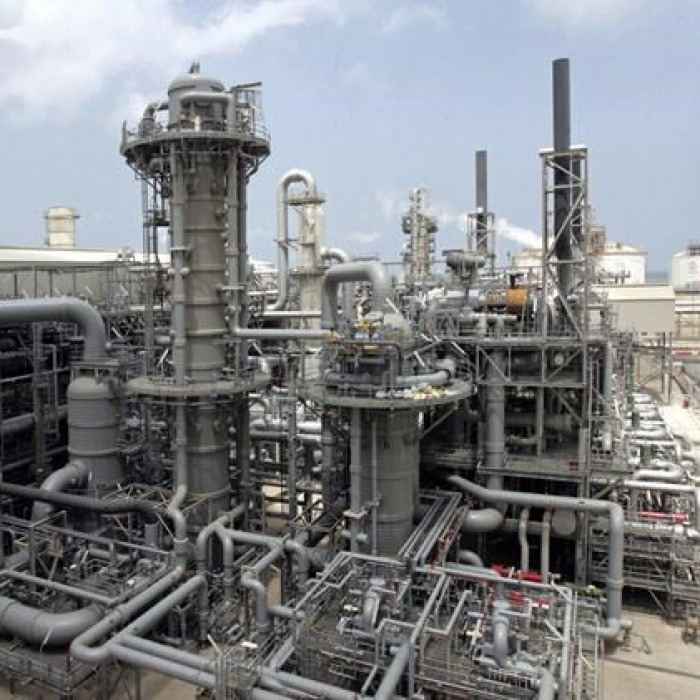
DUBAI, United Arab Emirates — Natural gas built the high-rises of Qatar's capital, put the Al-Jazeera satellite news network on the air and a fleet of passengers jets for its state carrier in the sky. Now, it may be what protects Qatar as it is in the
As the world's biggest exporter of liquid natural gas, Qatar's supplies keep homes warm in the British winter, fuel Asian markets and even power the electrical grid of the United Arab Emirates, one of the main countries that has cut ties to the energy-rich nation.
So far, its supplies have continued uninterrupted since the diplomatic dispute began last week. Natural gas markets have yet to respond to the rift and prices have remained stable. But Qatar wields a potential economic weapon if the crisis escalates and countries around the world that depend on its supply may find themselves needing to side with the tiny nation that is home to a major U.S. military installation.
"If Qatari gas exports were to be blocked, countries like Britain, Japan, South Korea and China would have an energy crisis and would have to scramble to get their energy elsewhere," said Kristian Coates Ulrichsen, a Seattle-based research fellow at the James A. Baker III Institute for Public Policy at Rice University who has extensively studied Qatar.
"For any small country, particularly a small country in the Gulf surrounded by much larger and potentially expansionary powers, having international partnerships is a key tool of your external security," he said. "I think that may be what the Qataris are banking on right now."
Qatar, a country of 2.2 million people where citizens make up over 10
It began exporting natural gas in 1997, just after Qatari Crown Prince Hamad bin Khalifa Al Thani seized power from his father, Sheikh Khalifa, in a palace coup. Sheikh Hamad used revenue from the natural gas to pursue a diplomatic path away from Saudi Arabia, long the heavyweight among Gulf countries. Qatar also secured hosting the 2022 FIFA World Cup, relying on that money to build stadiums and develop Doha, its capital.
But all that time, Qatar kept a wary eye on its
As a hedge, Qatar hosts some 10,000 American soldiers and the forward headquarters of the U.S. military's Central Command. Other nations also operate forces out of Qatar. Its military, numbering around 11,800 troops, is only bigger than Bahrain's.
"They really began an effort to escape the Saudi shadow and to carve out an autonomous regional and foreign policy that would be distinct," Ulrichsen said. "It took on much more of an edge in 2011 when they really backed different sides in the Arab Spring. Qatar obviously made a bet that Islamists and the Muslim Brotherhood would be the group to back and clearly that over time failed to pay off."
That support sits at the heart of Bahrain, Egypt, Saudi Arabia and the UAE severing off diplomatic ties June 5 and cutting off Qatar from its land, sea and air routes. So far, Qatar has made a point of not retaliating against those nations.
Qatar's shipborne exports of liquid natural gas have continued to travel unhindered out of the Persian Gulf as well, though they could be a target if the crisis escalates. Qatar's biggest Asian clients are Japan, India and South Korea, according to energy research firm Wood Mackenzie. About a third of British gas supplies come from Qatar, which leads Europe.
Saad Sherida al-Kaabi, Qatar Petroleum's president and CEO, said Saturday that he wanted to assure customers "of our determined efforts to continue uninterrupted supplies." A statement from the state-run firm also made a point to note that the UAE, Egypt and Jordan all rely on its natural gas.
Qatar could retaliate by shutting down the undersea Dolphin Energy pipeline, which sends about 2 billion cubic feet (56 million cubic meters) of natural gas a day into the UAE, about a third of its daily need. About 200 million cubic feet (5.66 million cubic meters) of that goes onto Oman.
Dolphin Energy, owned by the Abu Dhabi sovereign wealth fund called the Mubadala Development Co., French oil giant Total SA and Houston-based Occidental Petroleum, did not respond to a request for comment.
Without that natural gas, electricity plants in Dubai and the UAE capital of Abu Dhabi wouldn't be able to power air conditioners to beat the brutal heat of summer now descending on the desert sheikhdoms, nor run its vital desalination plants producing water. It would take time to import that gas from another source.
"If Qatar was to do anything like that, in Dubai the lights would probably go off," said Christopher Davidson, a professor of Middle East politics at Durham University in Britain. "If this were to happen, it would be such an escalation from Qatar's side, the UAE and Saudi would up the ante even more. ... If they were to do that, I think it would be no holds barred."
___
Follow Jon Gambrell on Twitter at www.twitter.com/jongambrellap. His work can be found at http://apne.ws/2galNpz.
Jon Gambrell, The Associated Press
Share This:





 CDN NEWS |
CDN NEWS |  US NEWS
US NEWS 






























